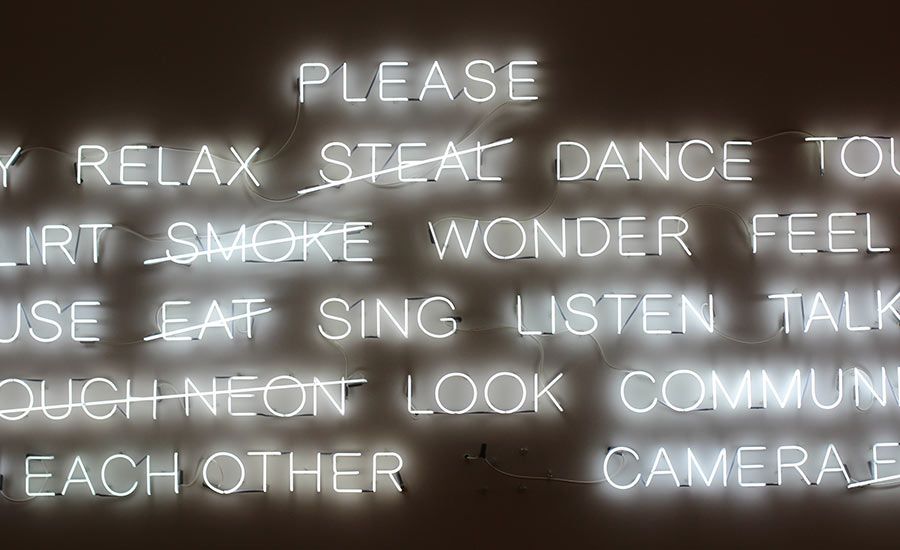
How Gender Affects the Way We Communicate at Work (And What to Do About It)
Have you ever been told you apologize too much? That you should speak more directly? That you need to be more assertive? If you're a woman in the workplace, chances are you've received feedback like this—and wondered whether something was actually wrong with how you communicate, or whether the problem lies elsewhere.
The relationship between gender and language is complex. Research spanning decades has documented that men and women often communicate differently—in their word choices, speech patterns, nonverbal cues, and conversational goals. But understanding why these differences exist, and how they're perceived in professional settings, matters far more than simply cataloging them.
The uncomfortable truth is that workplaces were largely designed around male communication norms. When women speak in ways that feel natural and effective to them, they're often judged against a standard they had no part in creating. The goal isn't to "fix" how women communicate—it's to understand the landscape and navigate it strategically.
Where These Differences Come From
Gender differences in communication aren't hardwired from birth. They're learned—absorbed from childhood through socialization, cultural expectations, and the different ways boys and girls are taught to interact with the world.
Linguist Deborah Tannen, whose research on gender and language has been influential for decades, explains that boys and girls grow up in what amount to different linguistic cultures. Boys typically learn to use language to establish status, display knowledge, and compete for attention. Girls learn to use language to build connection, create intimacy, and maintain social harmony.
These patterns continue into adulthood. By the time we enter the workplace, we've internalized communication styles that feel natural but carry different implications depending on our gender. Neither style is inherently better—they're simply different, shaped by different social expectations and goals.
The problem arises when one style is treated as the default and the other is judged as deficient.
Common Gendered Communication Patterns
Before we go further, an important caveat: these are tendencies observed in research, not universal rules. Individual variation is enormous, and many people communicate in ways that don't align with their gender's typical patterns. Use these observations as a lens for understanding, not a box for categorizing.
Directness vs. Collaborative Language
Men tend to favor direct statements: "We need to change the timeline." Women more often use collaborative framing: "What if we considered adjusting the timeline?" or "I think we might need to look at the timeline."
Women's phrasing isn't uncertainty—it's an invitation to dialogue. It leaves room for input, saves face for others who might disagree, and builds consensus. But in workplace settings where directness is prized, this collaborative approach can be misread as indecisiveness or lack of confidence.
Tag Questions and Hedging Language
Women are more likely to use tag questions—"This approach makes sense, doesn't it?"—and hedging phrases like "I think," "I feel like," or "sort of." Linguist Robin Lakoff first documented this pattern in the 1970s, and subsequent research has consistently confirmed it.
These linguistic features serve a purpose: they invite agreement, soften potential conflict, and acknowledge that others might have valid perspectives. But they can also be interpreted as a sign of weakness or uncertainty, especially by those unfamiliar with the intent behind them.
Apologizing and Softening
"Sorry, but I have a question." "Sorry to bother you." "I'm sorry, I don't think that's quite right." Women apologize more frequently than men—not because they've done more wrong, but because "sorry" often functions as a social lubricant rather than a genuine apology.
When a woman says, "Sorry, can I add something?" she's typically not actually apologizing. She's signaling politeness, acknowledging she's taking up space, and smoothing the interaction. The problem is that listeners may take the apology at face value, inferring that she's less confident or less entitled to speak.
Active Listening Signals
Women tend to show engagement more actively during conversations—nodding, maintaining eye contact, using verbal affirmations like "mm-hmm," "right," or "I see." These signals communicate attention and respect for the speaker.
Men are more likely to listen without these visible cues, which can make women feel unheard or dismissed. Conversely, women's active listening can be misinterpreted as agreement when it's simply acknowledgment.
Conversational Goals: Status vs. Connection
Research consistently shows that men often approach conversation as an opportunity to establish or maintain status—demonstrating expertise, challenging ideas, and positioning themselves in a hierarchy. Women more often approach conversation as an opportunity to build connection—sharing experiences, finding common ground, and supporting others' contributions.
Neither goal is wrong. But when these different orientations meet in a professional setting, misunderstandings can arise. A man who challenges an idea might see himself as engaging productively; a woman receiving that challenge might experience it as dismissive. A woman who shares a personal anecdote to connect might see herself as building rapport; a man listening might wonder what the point is.
How This Plays Out in the Workplace
Understanding these patterns matters because they have real consequences for women's professional lives.
Being Interrupted and Talked Over
Studies consistently show that women are interrupted more frequently than men, both by men and by other women. In mixed-gender meetings, men speak more and for longer periods. Women's contributions are more likely to be attributed to someone else or forgotten entirely.
The pandemic made this worse in some ways—a New York Times article documented women's struggles to be heard in virtual meetings, where the lack of nonverbal cues and the ease of muting created new barriers.
The Double Bind
Women in professional settings often face an impossible choice: communicate in traditionally "feminine" ways and be seen as likeable but not leadership material, or communicate in traditionally "masculine" ways and be seen as competent but unlikeable.
A woman who speaks directly may be labeled aggressive or abrasive. A woman who speaks collaboratively may be labeled indecisive or uncertain. The same behaviors that earn men respect can earn women criticism. This double bind is one of the most persistent challenges facing professional women.
Credit and Visibility
Women's communication styles can inadvertently obscure their contributions. When a woman says "We accomplished this" instead of "I accomplished this," or frames her achievement as a question rather than a statement, she may be perceived as less central to the success—even when she drove it.

Similarly, women who share credit generously or downplay their expertise may find themselves passed over for opportunities that go to colleagues who communicate their value more assertively.
What You Can Do: Strategies That Actually Help
The answer isn't to completely overhaul how you communicate—that's exhausting, inauthentic, and often backfires. The answer is strategic awareness: understanding how your communication might be perceived and making intentional choices about when to adapt and when to stay true to your natural style.
Know When Directness Matters
In high-stakes situations—negotiations, presentations to leadership, critical feedback—directness often serves you better. Practice stating your position clearly: "I recommend we pursue Option A because..." rather than "I was kind of thinking maybe Option A might work?" Save the collaborative framing for contexts where it's genuinely useful.
Audit Your Apologies
Pay attention to when you say "sorry" and ask whether an apology is actually warranted. "Sorry to interrupt," when you have a critical contribution isn't serving you—try "I want to add something important" instead. Reserve apologies for genuine mistakes, and replace the reflexive “sorry" with more neutral phrases.
Claim Your Work
Practice talking about your contributions using "I" language. "I led this project." "I developed this strategy." "My analysis showed..." This isn't arrogance—it's accuracy. You can acknowledge your team while still making your role visible.
Amplify Other Women
When a woman makes a good point in a meeting, reinforce it: "I think Sarah's point about the timeline is important—can we explore that?" This amplification strategy, which gained attention when women in the Obama White House adopted it, helps ensure contributions don't get lost or attributed to others.
Choose Your Battles
You don't have to adapt your communication style in every situation. Sometimes the most powerful thing you can do is communicate authentically and let your competence speak for itself. Save your strategic adjustments for moments when they'll have the most impact.
The Bigger Picture: It's Not Just About Individual Choices
While individual strategies can help, it's important to acknowledge that the real problem isn't women's communication styles—it's a workplace culture that treats male communication norms as the default.
Organizations can address this by training all employees to recognize gendered communication patterns and their own biases, creating meeting structures that ensure everyone's voice is heard, and evaluating people on outcomes rather than on whether their communication style matches a particular template.
As linguist Deborah Tannen puts it: "The biggest mistake is believing there is one right way to listen, to talk, to have a conversation—or a relationship."
Language isn't inherently sexist. But the way we interpret language—and the assumptions we make about speakers based on their style—often is. Changing that requires awareness from everyone, not just the women being asked to adapt.
FAQs About Gender and Communication
Are gender differences in communication biological or learned?
Primarily learned. While there may be some biological influences, research strongly suggests that communication differences are shaped by socialization, cultural expectations, and learned behaviors from childhood onward.
Should women change how they communicate to succeed at work?
Not wholesale. Strategic adaptation in specific contexts can be helpful, but fundamentally changing your communication style is exhausting and often backfires. The goal is awareness and intentional choice, not constant code-switching.
Why do women apologize more than men?
Women often use "sorry" as a social lubricant rather than a genuine apology—it's a way of softening requests, acknowledging they're taking up space, or smoothing interactions. The issue isn't the apology itself but how it's interpreted by listeners.
How can I speak up more in meetings without being seen as aggressive?
Focus on your content and delivery rather than worrying about perception. Speak clearly and confidently, ground your contributions in facts and expertise, and remember that some people will judge you no matter what—don't let that silence you.
What is the 'double bind' for women in communication?
The double bind refers to women facing contradictory expectations: communicate in traditionally feminine ways and be seen as likeable but not leader material, or communicate in traditionally masculine ways and be seen as competent but unlikeable. It's a no-win situation rooted in biased expectations.
How can men be better allies in workplace communication?
Notice when women are interrupted and redirect attention back to them. Attribute ideas accurately. Create space for different communication styles. Examine your own assumptions about what "confident" or "competent" communication looks like.
Related Reading:
• Are You Suffering from Impostor Syndrome?
• How to Handle Criticism at Work
• She Took Over Her Family Business at 18: A Young Woman on Proving Herself
Further Reading:
• Deborah Tannen - "You Just Don't Understand: Women and Men in Conversation"
• Harvard Business Review - Women, Find Your Voice
• Robin Lakoff - "Language and Woman's Place" (foundational research)






